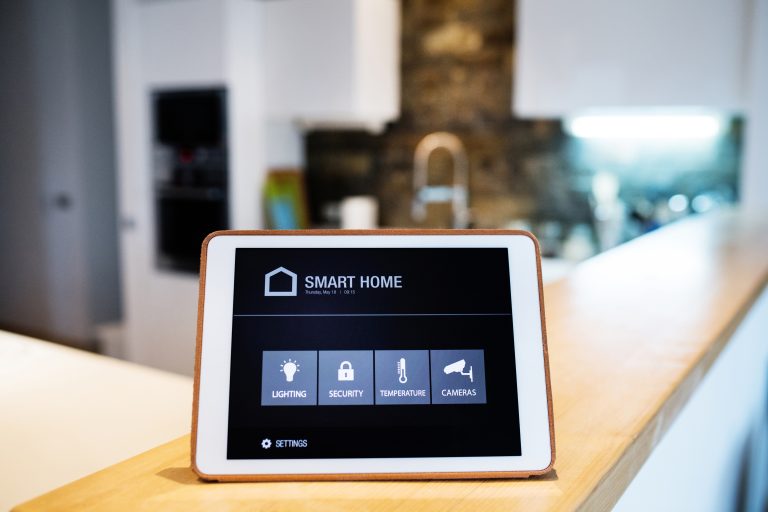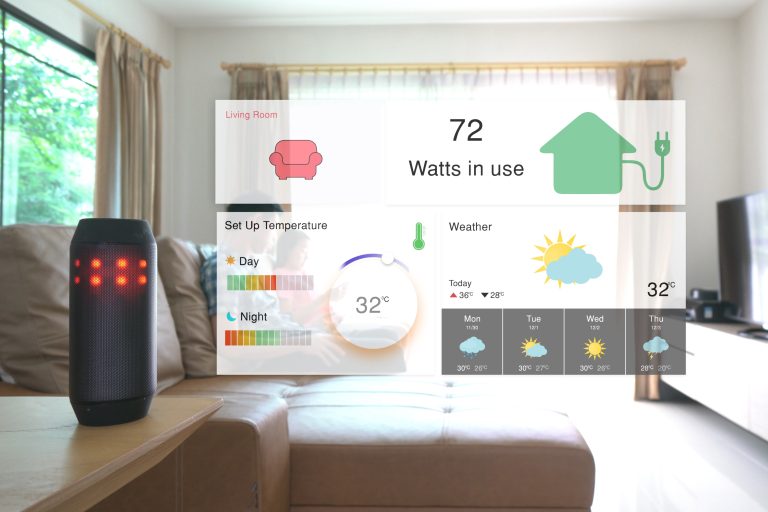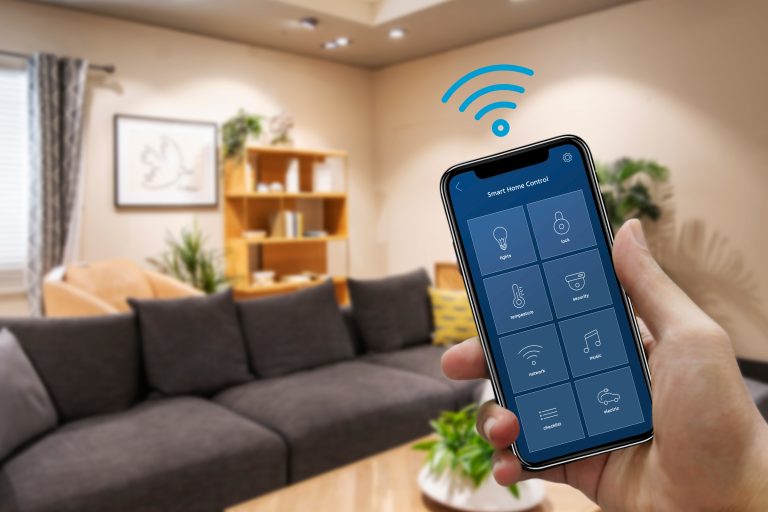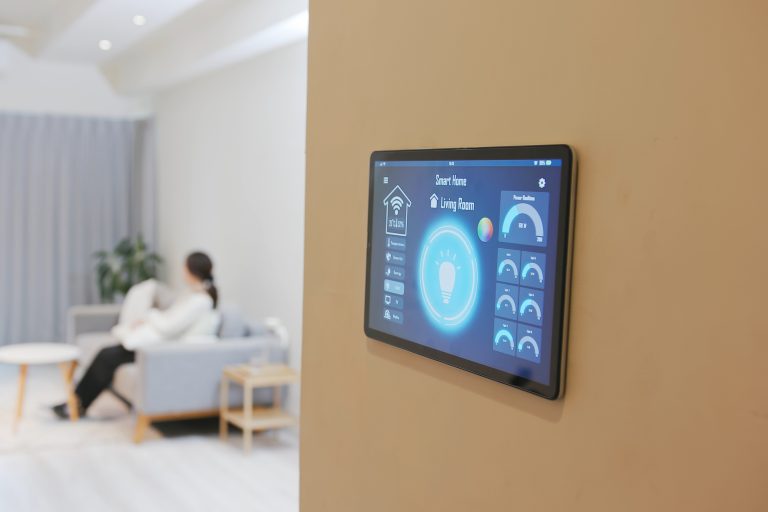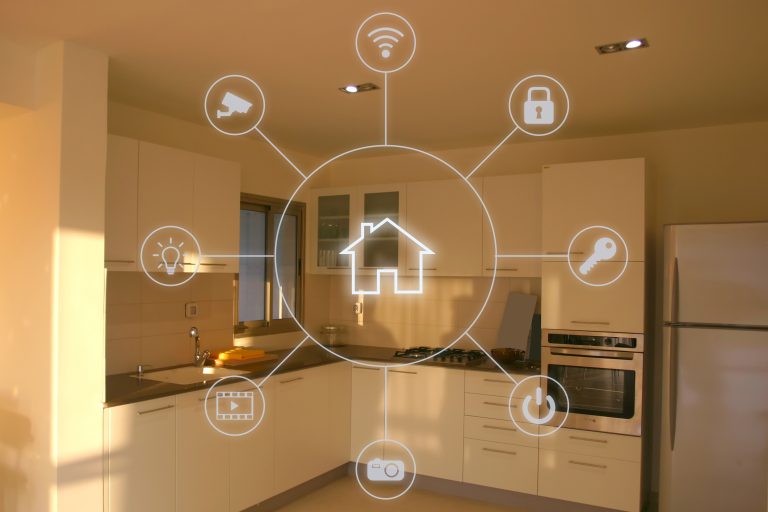Are you tired of manually controlling every aspect of your home? Wish you could automate tasks and make your life...
Home Automation and Smart Devices
In recent years, there has been a significant rise in the adoption of home automation and smart devices. With advancements in technology, homeowners now have the ability to control and monitor various aspects of their homes remotely, making their lives more convenient, efficient, and secure. This category description aims to explore the concept of home automation and smart devices, highlighting their benefits, applications, and the impact they have on our daily lives.
What is Home Automation?
Home automation refers to the use of technology to control and automate various devices and systems within a home. It allows homeowners to remotely manage and monitor functions such as lighting, heating, ventilation, air conditioning (HVAC), security systems, entertainment systems, and even appliances. By integrating these devices and systems into a cohesive network, homeowners can create a smart home that offers convenience, energy efficiency, and enhanced security.
The Benefits of Home Automation
- Convenience and Comfort: Home automation simplifies daily tasks and routines. With smart devices, homeowners can control lighting, temperature, and entertainment systems from a single interface, eliminating the need for multiple remotes or manual adjustments. For example, with a voice command or a smartphone app, one can dim the lights, adjust the thermostat, and play music simultaneously, creating a personalized and comfortable environment.
- Energy Efficiency and Cost Savings: Home automation enables homeowners to optimize energy consumption. Smart thermostats can learn household patterns and adjust temperature settings accordingly, reducing energy waste. Lighting systems can be programmed to turn off when a room is unoccupied, saving electricity. These energy-saving features not only benefit the environment but also result in significant cost savings on utility bills.
- Enhanced Security: Smart security systems provide homeowners with peace of mind. By integrating surveillance cameras, door locks, and alarm systems, homeowners can monitor their property remotely and receive real-time alerts in case of any suspicious activity. Additionally, home automation allows for the simulation of occupancy, making it appear as if someone is home even when the house is vacant, deterring potential burglars.
- Remote Monitoring and Control: One of the key advantages of home automation is the ability to monitor and control devices and systems remotely. Through a smartphone app or a web portal, homeowners can check security cameras, lock or unlock doors, adjust temperature settings, and even receive notifications about power outages or water leaks, ensuring that their homes are safe and secure, no matter where they are.
Smart Devices for Home Automation
- Smart Lighting: Smart lighting systems allow homeowners to control the intensity, color, and timing of their lights. With voice commands or smartphone apps, homeowners can create lighting schedules, adjust brightness, and even change the ambiance of a room. Some smart lighting systems can also sync with music or movies, providing an immersive experience.
- Smart Thermostats: Smart thermostats revolutionize home heating and cooling systems. These devices learn household patterns and adjust temperature settings accordingly, optimizing energy consumption. They can also be controlled remotely, allowing homeowners to adjust the temperature before arriving home, resulting in energy savings and increased comfort.
- Smart Security Systems: Smart security systems offer advanced features such as surveillance cameras, motion sensors, door and window sensors, and smart locks. These devices can be integrated into a central hub, allowing homeowners to monitor their property remotely and receive real-time notifications in case of any security breaches.
- Smart Appliances: Smart appliances, such as refrigerators, washing machines, and ovens, offer increased convenience and efficiency. These devices can be controlled remotely, allowing homeowners to start or stop appliances, adjust settings, and receive notifications about maintenance or repair needs.
- Smart Entertainment Systems: Smart entertainment systems provide immersive and personalized experiences. With voice commands or smartphone apps, homeowners can control audio and video devices, stream content from various platforms, and create customized playlists, enhancing their entertainment options.
Applications of Home Automation
- Energy Management: Home automation enables homeowners to monitor and manage their energy consumption effectively. By integrating smart devices, homeowners can track energy usage, identify energy-intensive appliances, and make informed decisions to reduce their carbon footprint and save on energy costs.
- Home Security: Smart security systems play a significant role in home automation. Homeowners can monitor their property remotely, receive real-time alerts, and even grant access to visitors remotely. These systems provide a sense of security and peace of mind, ensuring that homes and loved ones are protected.
- Elderly and Disability Care: Home automation offers tremendous benefits for the elderly and individuals with disabilities. With smart devices, these individuals can control their environment easily, such as adjusting lighting, temperature, and accessing emergency services with a simple voice command or the push of a button.
- Home Healthcare: Home automation is increasingly being used in healthcare settings. Smart devices enable remote patient monitoring, medication reminders, and emergency alerts, allowing healthcare providers to deliver better care and improve patient outcomes .
Benefits of Home Automation
- Increased Convenience: Home automation eliminates the need for manual operation of various devices and systems, making everyday tasks easier and more efficient. Smart devices can be controlled remotely or through voice commands, allowing homeowners to manage their environment with ease.
- Improved Safety: Smart security systems help protect homes and loved ones from potential threats . They can detect any suspicious activity, alert homeowners in an emergency, and even grant access to visitors remotely.
- Enhanced Comfort: Smart thermostats allow homeowners to adjust their temperature settings remotely or according to a schedule. This ensures that homes are comfortable at all times, without wasting energy.
- Cost Savings: Home automation helps homeowners save money by optimizing energy consumption and eliminating the need for manual labor. Smart appliances can be monitored remotely, allowing homeowners to identify any energy-inefficient devices and make informed decisions to reduce their energy costs.
Future of Home Automation
- Improved User Experience: With the development of artificial intelligence, homeowners can expect smarter and more intuitive home automation systems. AI-enabled devices will be able to anticipate user needs and provide personalized experiences that cater to individual preferences.
- Enhanced Connectivity: The emergence of 5G networks will enable faster and more reliable connections between smart devices, making it easier for homeowners to control their environment remotely.
- Smarter Homes: Home automation systems will become increasingly sophisticated, allowing homeowners to create smart homes that can be controlled with a single voice command or the push of a button.
- Automated Service Robots: Smart robots will be able to provide automated services around the house, such as cleaning, monitoring and responding to emergencies. This will enable homeowners to enjoy a truly hands-free home automation experience.
Conclusion
In conclusion, home automation and smart devices are changing the way people live their lives. They provide convenience, efficiency, and safety to those who use them. While there are still some challenges in getting these devices to work together, the technology is constantly improving and new developments are being made every day. Home automation and smart devices have become a part of everyday life for many people, and they are only going to continue to grow in popularity. With the right setup, these devices can make life easier and more enjoyable for all of us.
Are you tired of constantly running around your house to adjust the thermostat, turn off lights, and lock doors? Do...
In a world where technology is constantly advancing, it's no surprise that home automation has become increasingly popular. From controlling...
Are you tired of living in a disconnected home? Do you want to embrace the convenience and efficiency of smart...
Are you tired of coming home to a dark house? Do you wish you could control your thermostat from anywhere?...

